Computing & IS
Ag. Heads of IT & IS Dr. Evelyn Kahiigi & Dr. Peter Nabende hand over office
Published
4 years agoon
By
Jane Anyango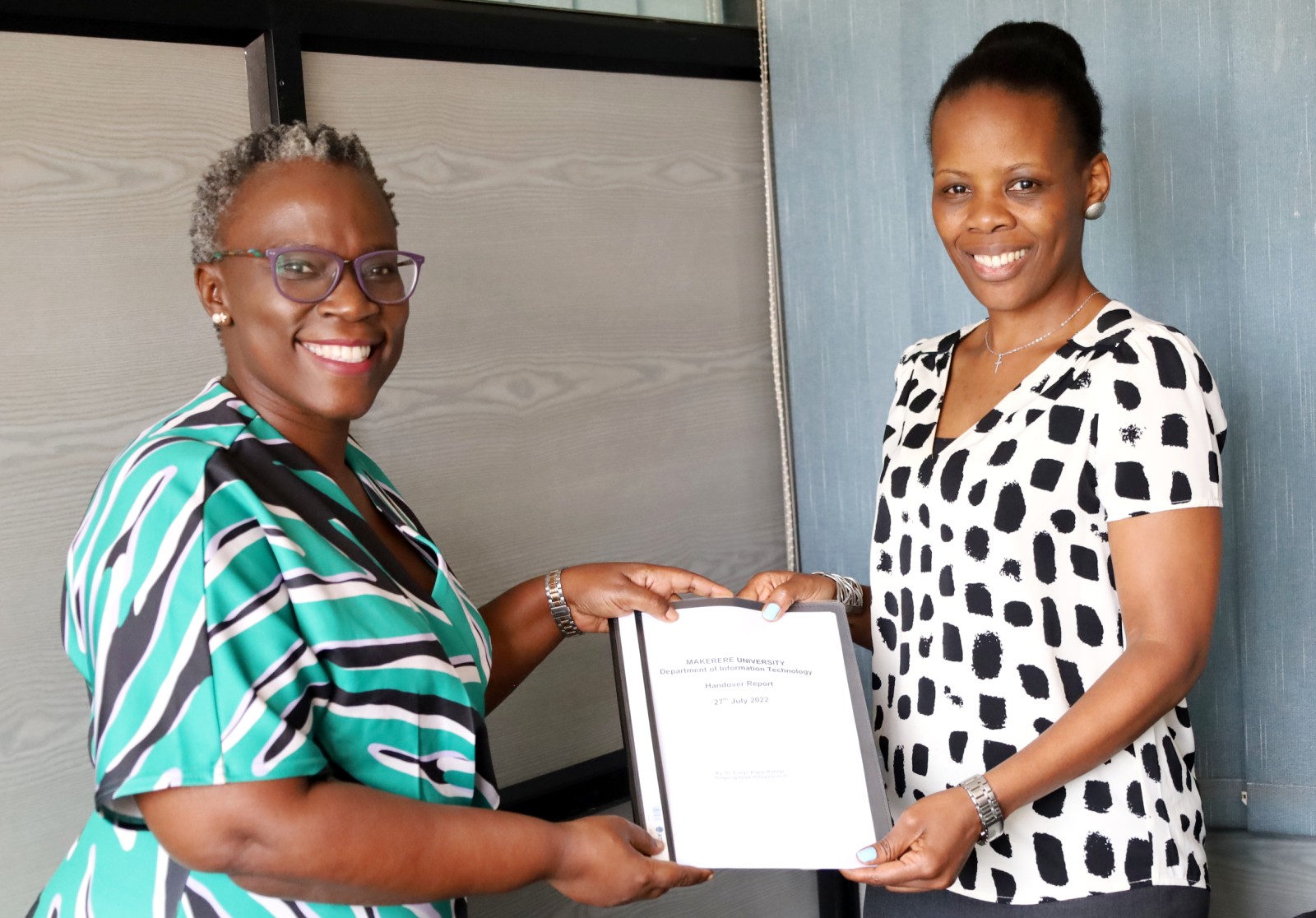
Two long time Acting (Ag.) Heads of Department from the School of Computing and Information Technology, College of Computing and Information Sciences (CoCIS) have handed over office to substantive heads.
Dr. Evelyn Kigozi Kahiigi who has served for eight years in Acting capacity as Head, Department of Information Technology (IT) has handed over the instruments of power to Dr. Fiona Tulinayo Penlope.
Dr. Peter Nabende who has served for nine years in Acting capacity as Head, Department of Information Systems (IS) has handed over to Dr. Agnes Nakakawa as substantive head.
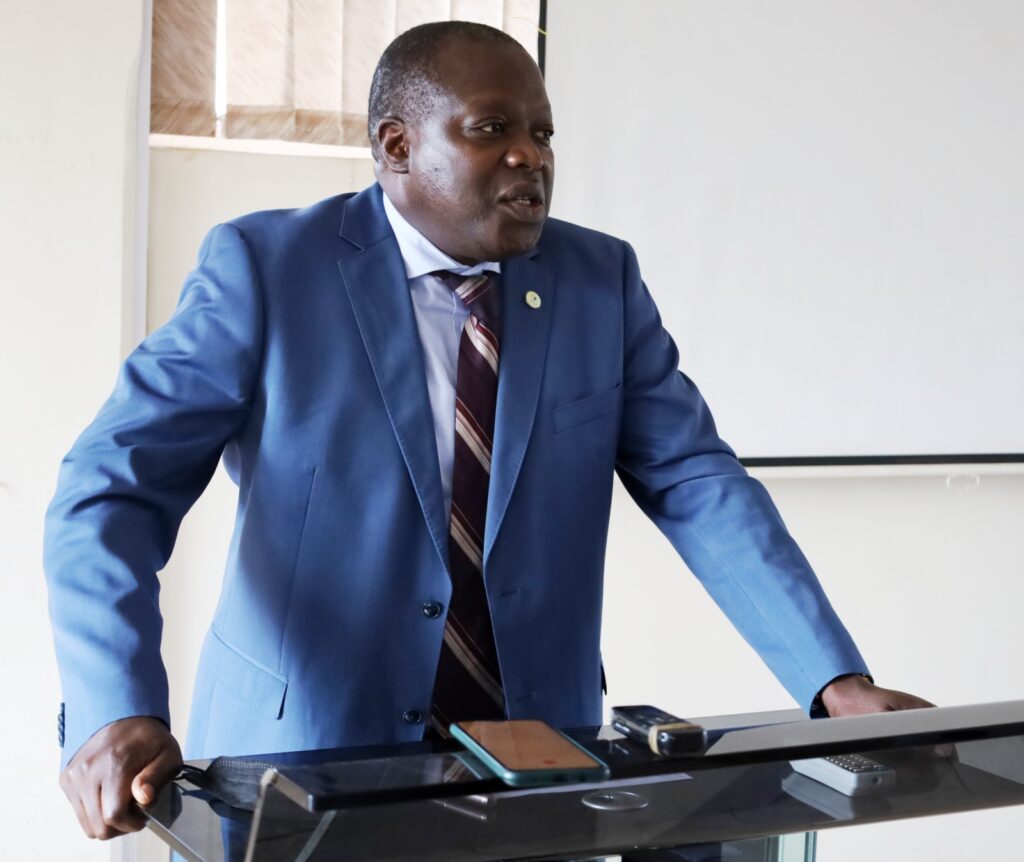
The handover ceremony for the duo was held on 27th July 2022 in the CoCIS Conference Room witnessed by the Principal CoCIS, Prof. Tonny Oyana, the Dean School of Computing and Information Technology Assoc. Prof, Gilbert Maiga, the representative from Internal Audit Mr, Aggrey Luwuliza, the Human Resource Officer, CoCIS Mr. Godwin Okiror, and staff from the college.
Prof. Oyana who described succession as part of life and management thanked the outgoing and incoming heads for offering themselves to serve the college. He noted that offering oneself for service is a public good and a challenge for all.
“You should have time for the college. There are three key responsibilities; Research – as you have to continue being a scholar; Teaching – a service that you offer to the nation to transfer knowledge to students; and thirdly Service to our country because God created us to serve him and others”. Prof. Oyana advised.
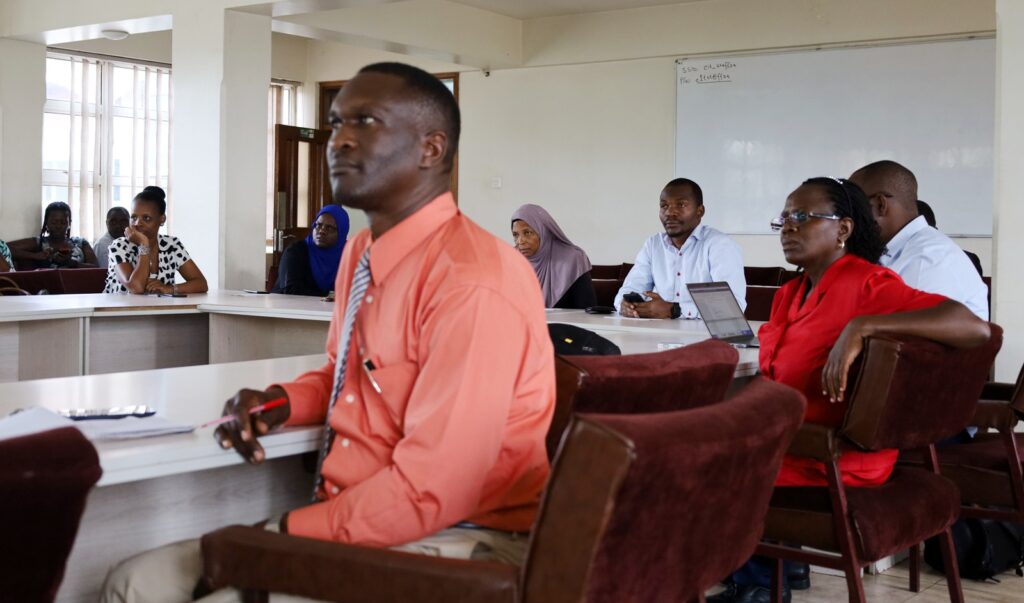
Prof. Oyana stressed that teaching is not a job but rather, a calling of transforming somebody’s life and adding value. Whereas money facilitates teaching, the professor advised it should not be the primary motivator for staff.
“Thank you Fiona and Agnes for accepting to take on the responsibility to serve the College, Makerere University and Uganda at large. Allowances are important and will come, but, they should not be your primary motivation but to do good. When you leave office and you find you have uplifted someone, you will find happiness”, Prof. Oyana counselled.
The Dean School of Computing and Information Technology Assoc. Prof. Gilbert Maiga hailed the college management for organizing the handover expressing hope that this would be the practice whenever there is change of office.
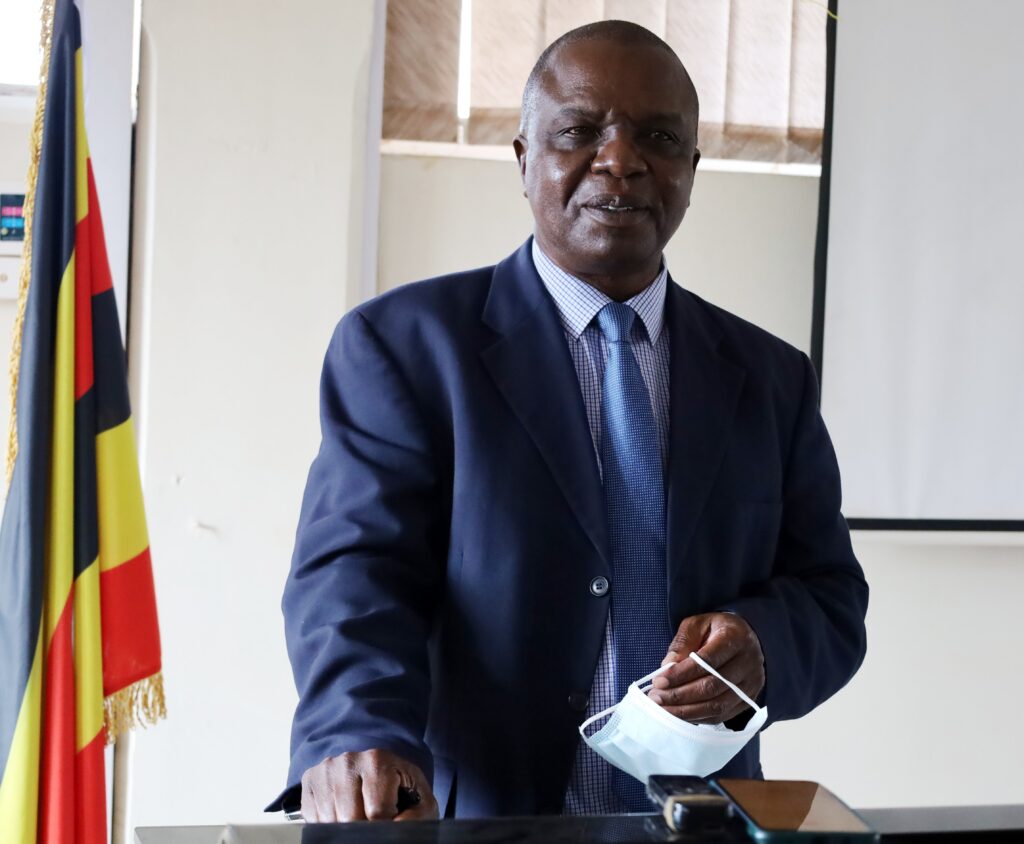
Prof. Maiga appreciated the outgoing heads for their dedicated services and sometimes serving outside the working hours. He equated the role of the heads of departments to the wheels on which the vehicle moves.
“I thank Evelyn and Peter for the job well done. The whole university depends on departments and I thank you colleagues for being good wheels in the university. They ensured students are admitted and graduate, so we are really very grateful for their services.
“To the incoming, It is a challenging assignment but we want to thank you for offering yourselves to serve and meet this challenge on behalf of the university. This university is a bureaucracy and in a bureaucracy, decisions are made by committees. A Department is so important in a way that once it decides, the Dean cannot overrule unless there is proper reason, which must be taken back for further consideration”, he added.
Outgoing Heads of Department speak
Outgoing head Department of Information Systems Dr. Peter Nabende thanked God for keeping him healthy and available to serve under different Principals, Deans and Administrators who accorded him support with different but effective styles of leadership and management.
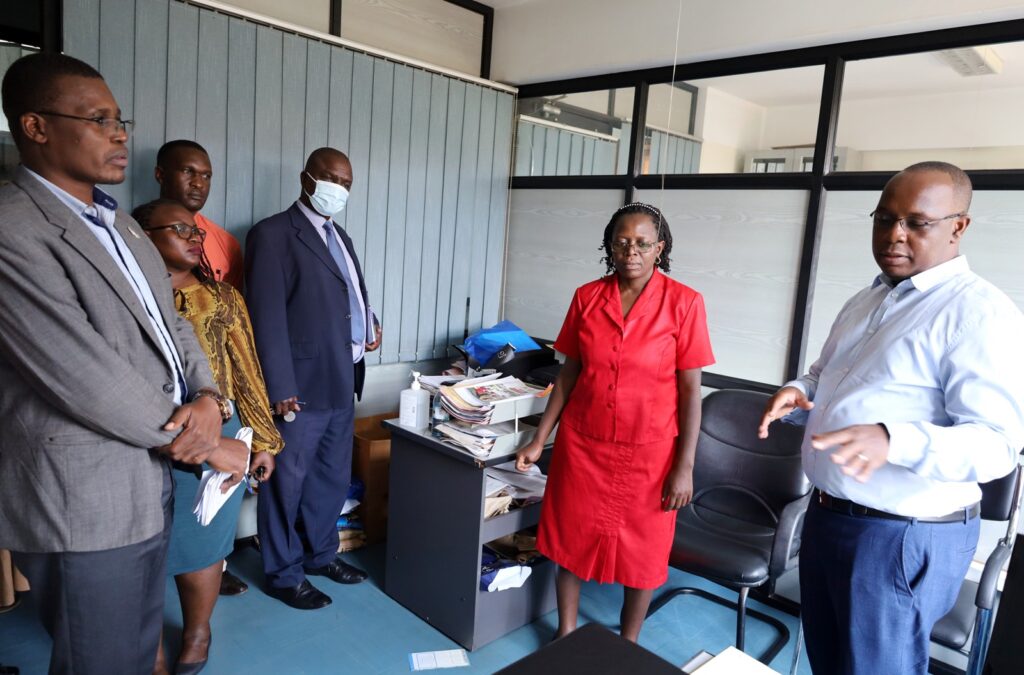
“I did substantive work in acting capacity as no one was willing to take up the substantive position but I am glad Dr. Agnes Nakakawa has accepted to take over. I appreciate the work by my colleagues, they have been resourceful, hardworking and supporting the department and university in different roles such as internship coordination, handling graduate programmes, examinations, teaching and research work”, Nabende appreciated.
The outgoing head Department of Information Technology Dr. Evelyn Kigozi Kahiigi thanked the office of the Principal, the Dean and Administrative officers for the guidance and mentorship during her eight year tenure noting that by the time she took over, the department had only one associate professor and one lecturer but many staff have ascended in their academic ranks.
“In eight years, I have been able to have an opportunity to act as Dean while he was on sabbatical leave, had an opportunity to serve as examination coordinator and I did a good job and all structures were put in place. The university adopted one of the forms I developed for non-registered students,” she reported.
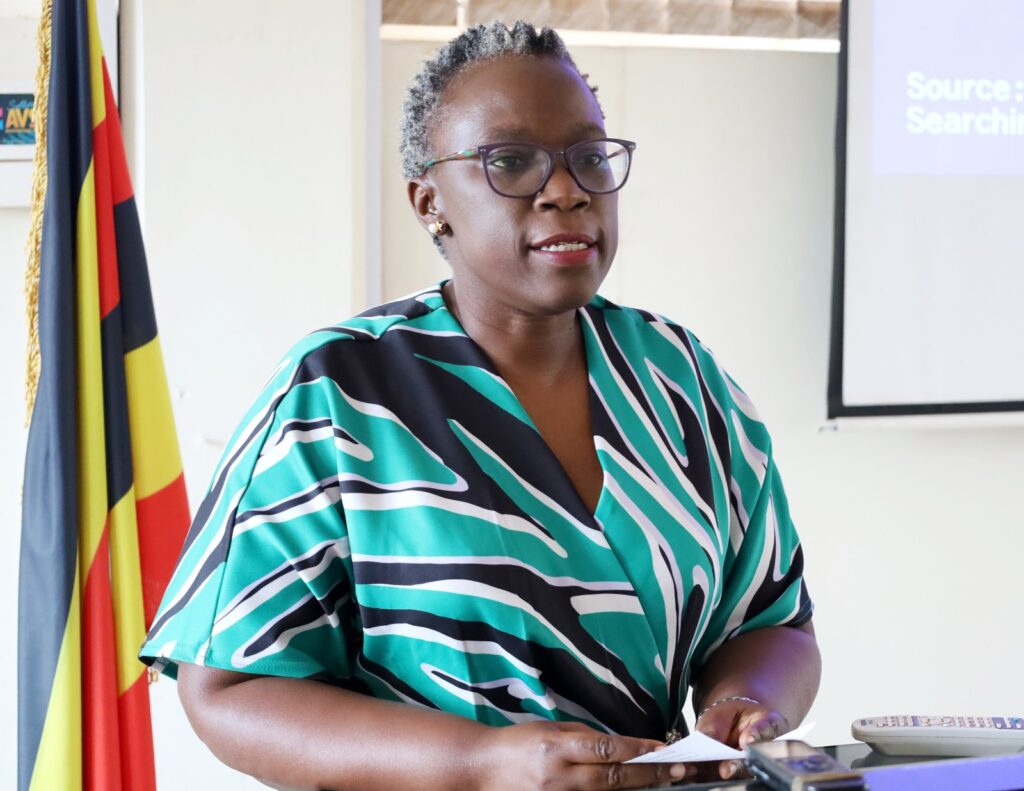
Dr. Kahiigi also said as only female dean on the fourth floor, all cases of students in need of counselling came to her door adding that, this gelling provided her an opportunity to connect with students across the school through an open door policy.
“Also God and family. As head you are everybody’s person and in so doing the family suffers. I thank my family for the support and God who has guided and given me grace to lead a wonderful team till today”, Dr. Kahiigi said.
Kahiigi informed the successor that the most challenging time for the head is during graduation when parents and students are excited and expressed the need for proper coordination and being available to support the students.
Staff hail outgoing heads
Speaker after speaker, praised Dr. Evelyn Kahiigi and Dr. Peter Nabende for their exemplary service and humility.
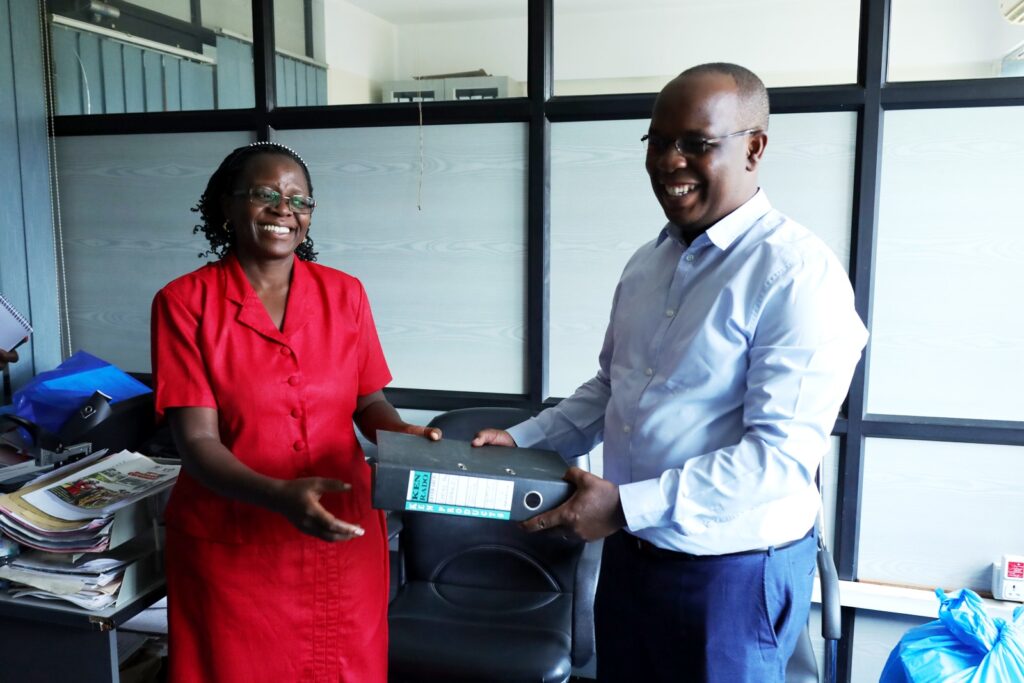
“These are people who have stood the test of time working in acting positions and they have given us hope that if appointed to a higher office, they can handle”, Dr. Agaba Joab said.
The departments have not found better and exceptional heads. Your commitment to work has motivated us. Dr. Evelyn is a mother and we thank you for mentoring us and we commit our unwavering support to the in-coming Head.
In Peter, we also found a very responsible person, I felt at home that we had two heads of department to consult anytime and were available physically and on phone”, said Dr. Annabella.
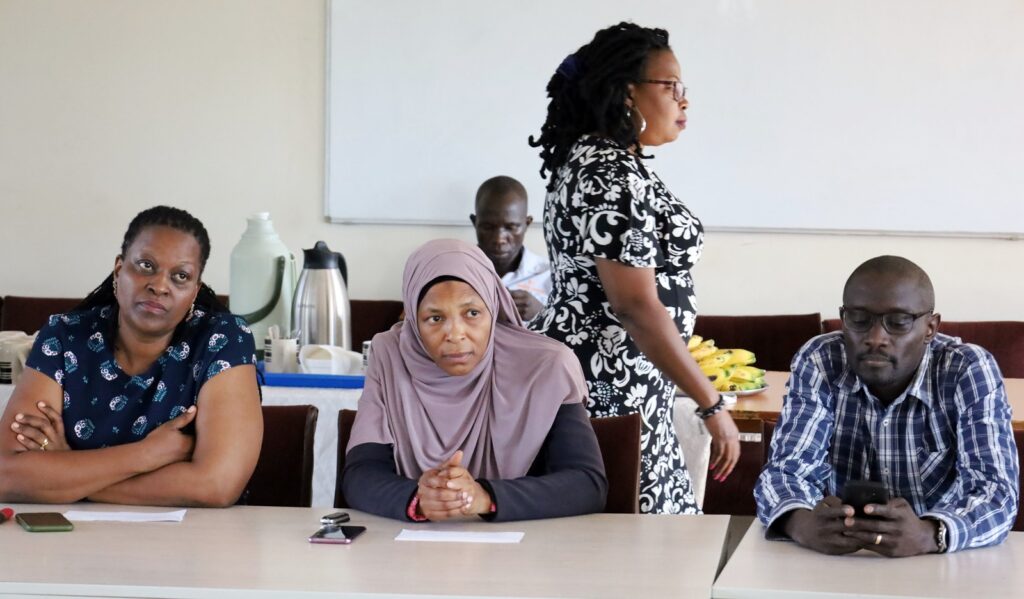
“It is encouraging to continue having female Heads of department. I thank the outgoing head Dr. Evelyn who has been a parent and at times of need would welcome you to her home to fix a problem. Dr. Fiona, you have our support.
“Peter, you are very flexible even in times of pressure you always found a way of calming down the situation,” Another one said.
New Heads of Department accept the appointment
“I am accepting the role. I will not chicken out. I am not an administrator but a teacher by calling. I appreciate the Principal and all colleagues who have been calling upon me to take up the administrative role”, Dr. Nakakawa said, thanking the outgoing head and staff for the support and the university management for trust.
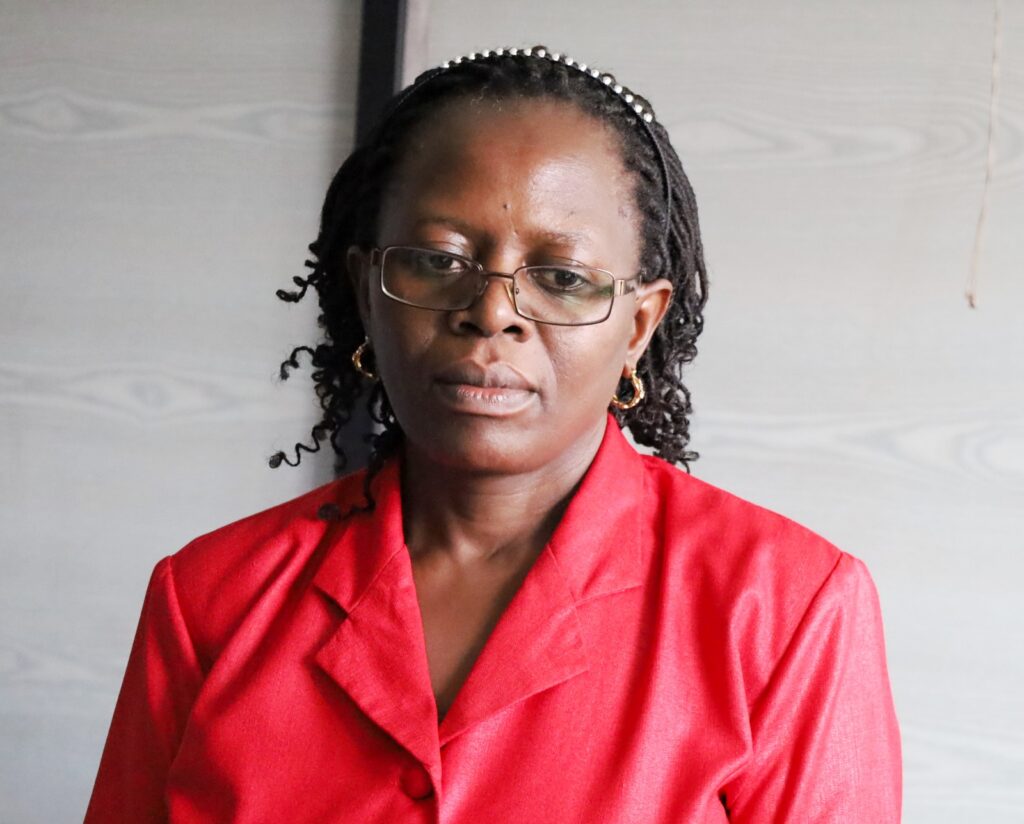
“I want to say, I accept. I thank the University for entrusting me with the responsibility. I am not threatened by words. Let me experience and see how it is.” Dr. Fiona Tulinayo Penlope said, pledging that she will deliver.
About the new Heads of Department
Dr. Tulinayo Fiona Penlope
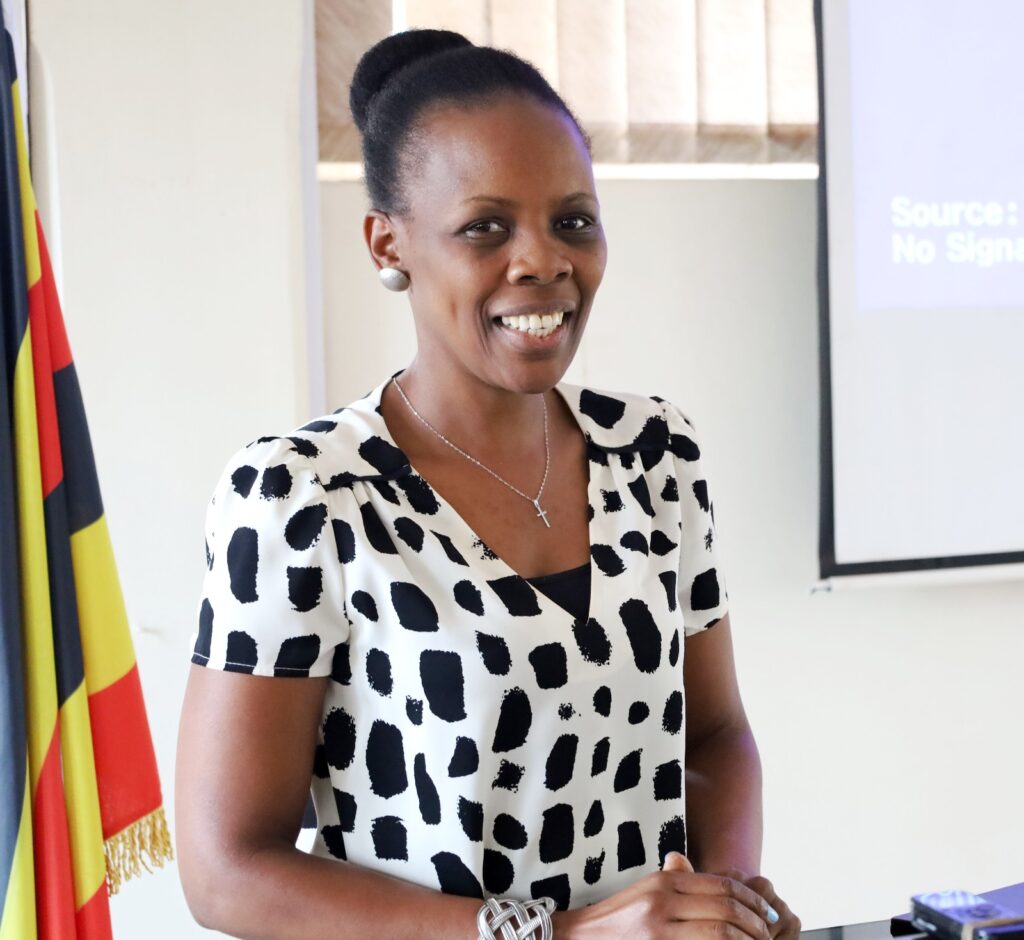
Fiona Tulinayo is a Lecturer at the School of computing and Information Science, Makerere
University. Dr. Tulinayo holds a PhD in Information Systems from Radboud University,
Nijmegen in the Netherlands; a Master of Science in Computer Science and a Bachelors of Industrial and Fine Arts from Makerere University. She specializes in systems development and computer graphics designing. Dr. Tulinayo has also undertake several trainings including scientific writing from University of Maastricht Language Centre, business process management from Vught, and Information Knowledge Systems organization from Zeist School for Information and Knowledge Systems in The Netherlands. Dr. Tulinayo has also specialized competences in modeling including; conceptual and domain modeling, system dynamics modeling, method engineering and process modeling. Further, she is an astute researcher, collaborator, technical and scientific writer with specialized abilities in handling institutional and development processes and management. Fiona has also provided several technical and institutional capacity development and support to the Ministry of Justice, Uganda and the Monitor Publications in Uganda.
Dr. Agnes Nakakawa
Agnes Nakakawa is an Information Systems professional and a Statistician. Since 2004, she has been involved in academia where she has proficiently lectured curriculum in the field of Computing and IT. She is also a diligent researcher in the Department of Information Systems at the School of Computing and IT. Nakakawa Agnes holds a PhD in Information Systems (Enterprise Architecture and Collaboration Engineering) from Radboud University Nijmegen (The Netherlands). Her PhD research involved developing a process/method that enterprise (IT) architects can use to deeply involve and collaborate with organizational stakeholders during the creation/design of baseline and target enterprise architectures. During her PhD research, she closely collaborated with several enterprises in Uganda. Dr. Agnes Nakakawa also holds an MSc. (Computer Information Systems). Her Masters research involved developing a spatial decision support tool that can be used to locate suitable landfill sites for municipal waste management in Wakiso and Kampala districts. She also holds a Bachelors degree in Statistics (Statistical Computing) from Makerere University.
Jane Anyango is the Principal Communication Officer, CoCIS
You may like
-
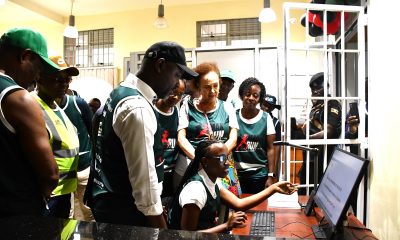

Students empowered to thrive through the Semester
-


Makerere Launches Scholarly Guide, Calls for Increased Research, Publication and Innovation in Africa
-


For Youth by Youth – Call for Second Cohort Applications
-


Dr. Samalie Namukose and the Quiet Work of Making Nutrition Count
-


Press Statement: Makerere University Congratulates Former Staff and Students on Successful Election to Public Office
-
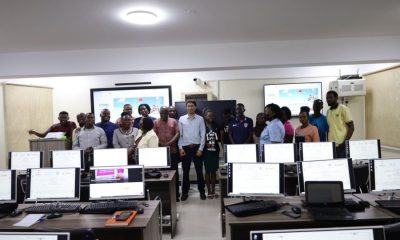

CoCIS CIPSD Short Courses Jan-Mar 2026
Computing & IS
Makerere Launches Scholarly Guide, Calls for Increased Research, Publication and Innovation in Africa
Published
1 week agoon
February 12, 2026By
Jane Anyango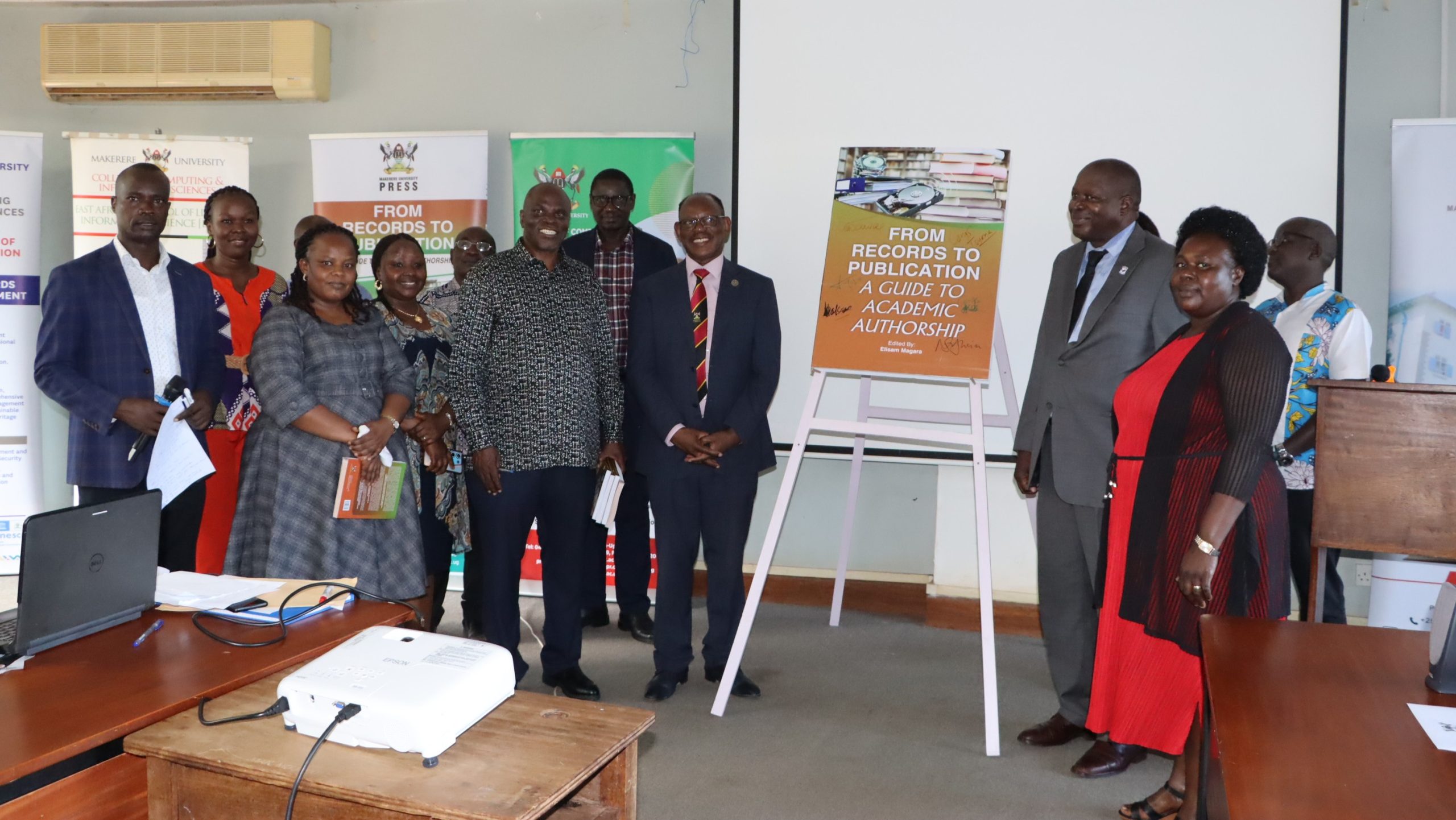
VC Emphasizes Research as Key to Africa’s Global Integration
Makerere University Vice Chancellor, Prof. Barnabas Nawangwe, has urged universities across Africa to invest in research, publication, and innovation as a pathway to greater participation in the global knowledge economy.
Speaking at the launch of From Records to Publication: A Guide to Academic Authorship, edited by Prof. Elisam Magara of the East African School of Library and Information Sciences, Prof. Nawangwe highlighted Africa’s low contribution to global scholarship. “Although Africa accounts for 15 percent of the world’s population, it produces only 3 percent of global research publications,” he said.
“There are historical reasons for this,” the Vice Chancellor continued, referencing centuries of slavery and colonialism. “You cannot brush away 600 years of subjugation. And we Africans have not even written enough about that. If we want to move Africa back into the global community, we must invest in research, publication, and innovation.”
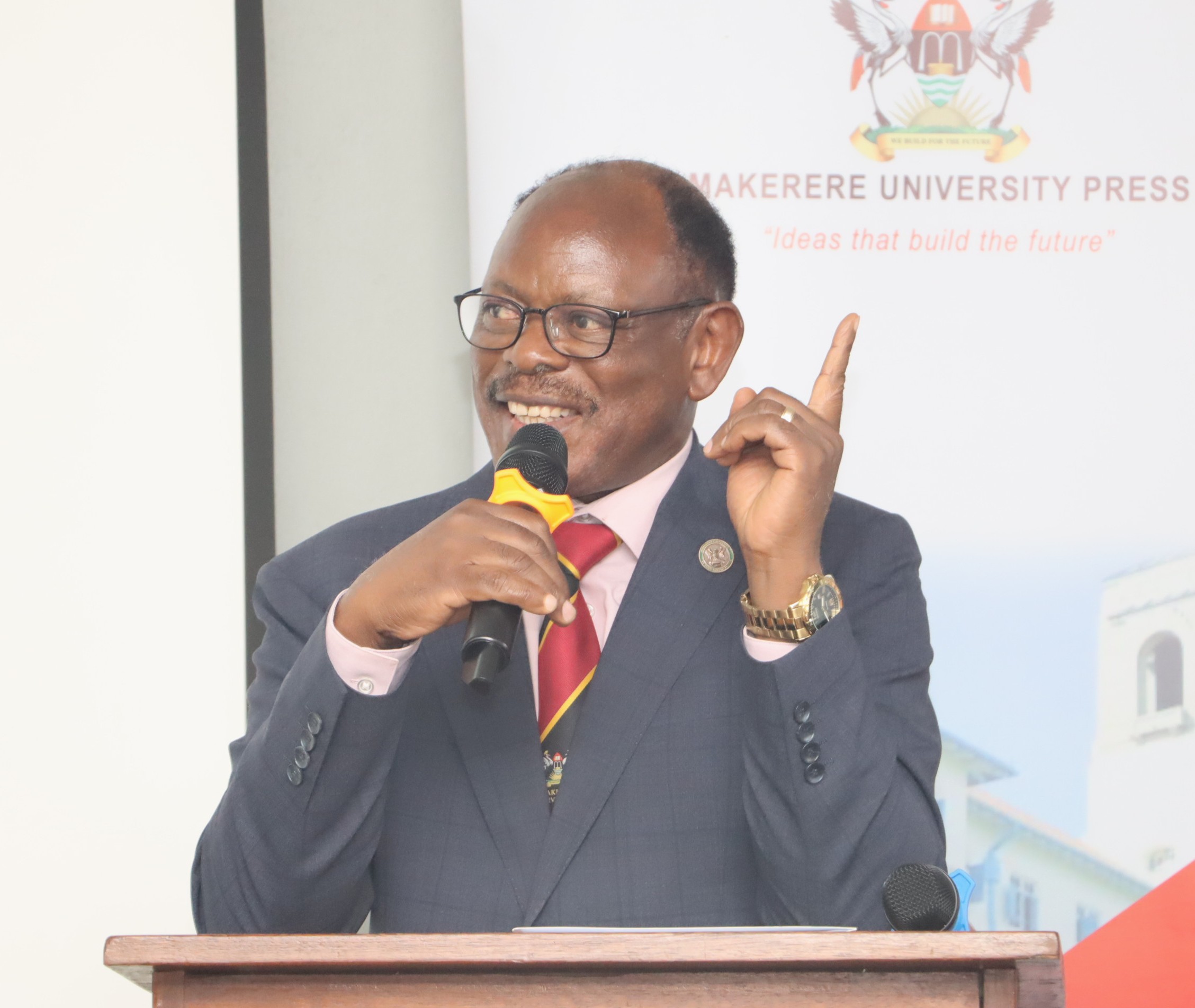
He cited China as an example, noting how the country’s investment in research and education has translated into economic and global influence. “When we say China is the factor of the world, it is not that people just wake up and begin making things. They invest in education, in publication, in research. If we want to transform Africa, we must do the same.”
Prof. Nawangwe highlighted Makerere’s progress, revealing that annual peer-reviewed publications have grown from about 500 a decade ago, to 700, and now exceed 2,000. He acknowledged that the university still trails South African institutions, partly because they operate numerous local journals that absorb significant volumes of research. “We are not fully utilising the brand of Makerere University Press,” he said, pledging support to strengthen the press and scale up journal production.
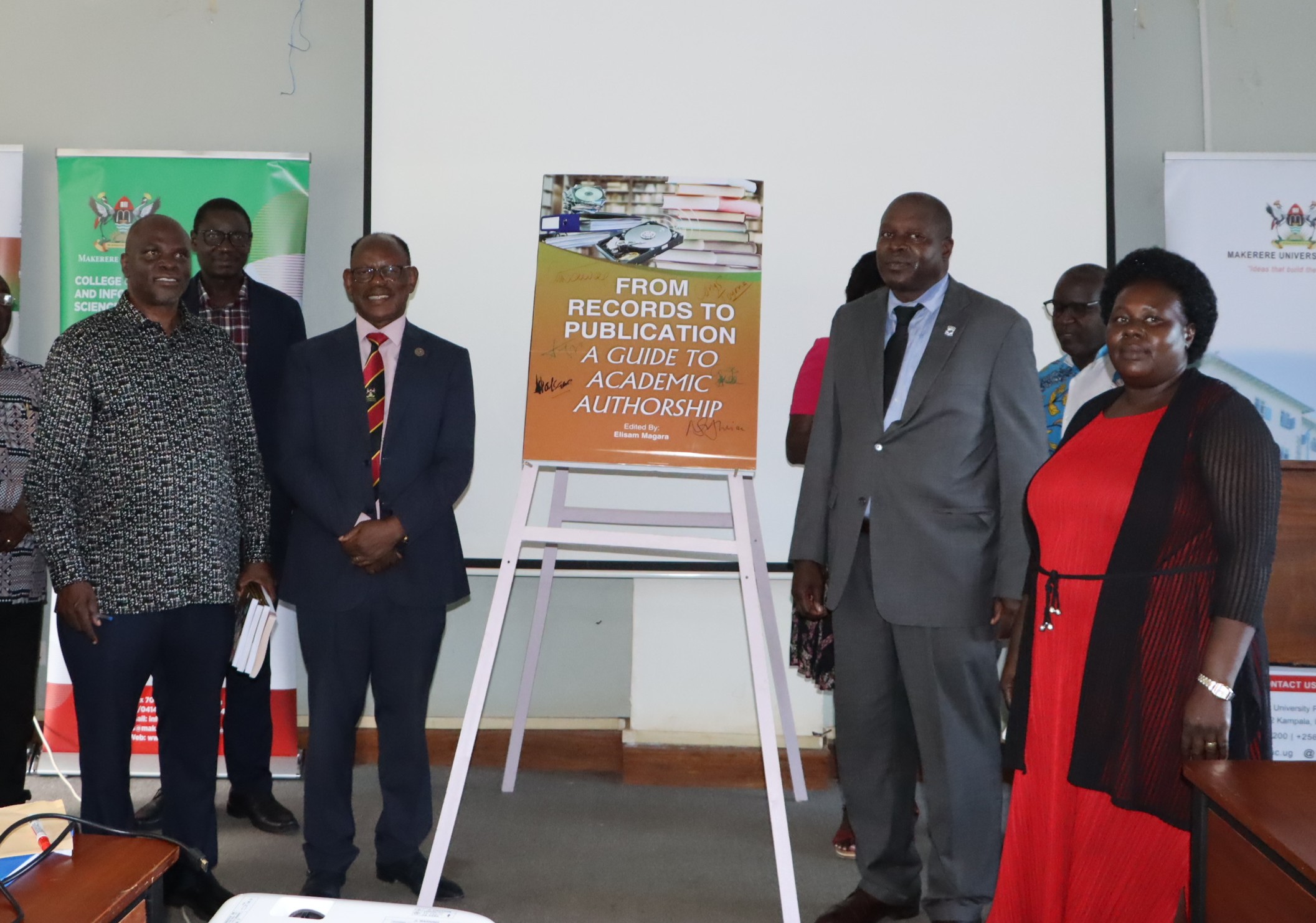
He also reaffirmed the university’s strategy to reduce excessive undergraduate enrolment and expand graduate training to boost research output. “Let us create time for professors to do research and supervise more graduate students,” he said.
Commending Professor Magara and his team for producing the authorship guide, Prof. Nawangwe described the book as an essential handbook for Master’s and PhD students, early-career researchers, and universities across the region striving to become research-led. “This is at the heart of the university. If we invest in research and publication, we secure our future,” he said.
Book Recommended as Mandatory Guide by College Principal
Makerere University’s Principal of the College of Computing and Information Sciences, Prof. Tonny Oyana, called for the newly launched volume to be adopted as a mandatory guide for graduate students and newly appointed lecturers. “This is not a bad book for our first-year PhD students to start with,” he said. “Even those who are hired as junior lecturers still need mentorship. If I were the Vice Chancellor, I would put this book as required reading for every new hire.”
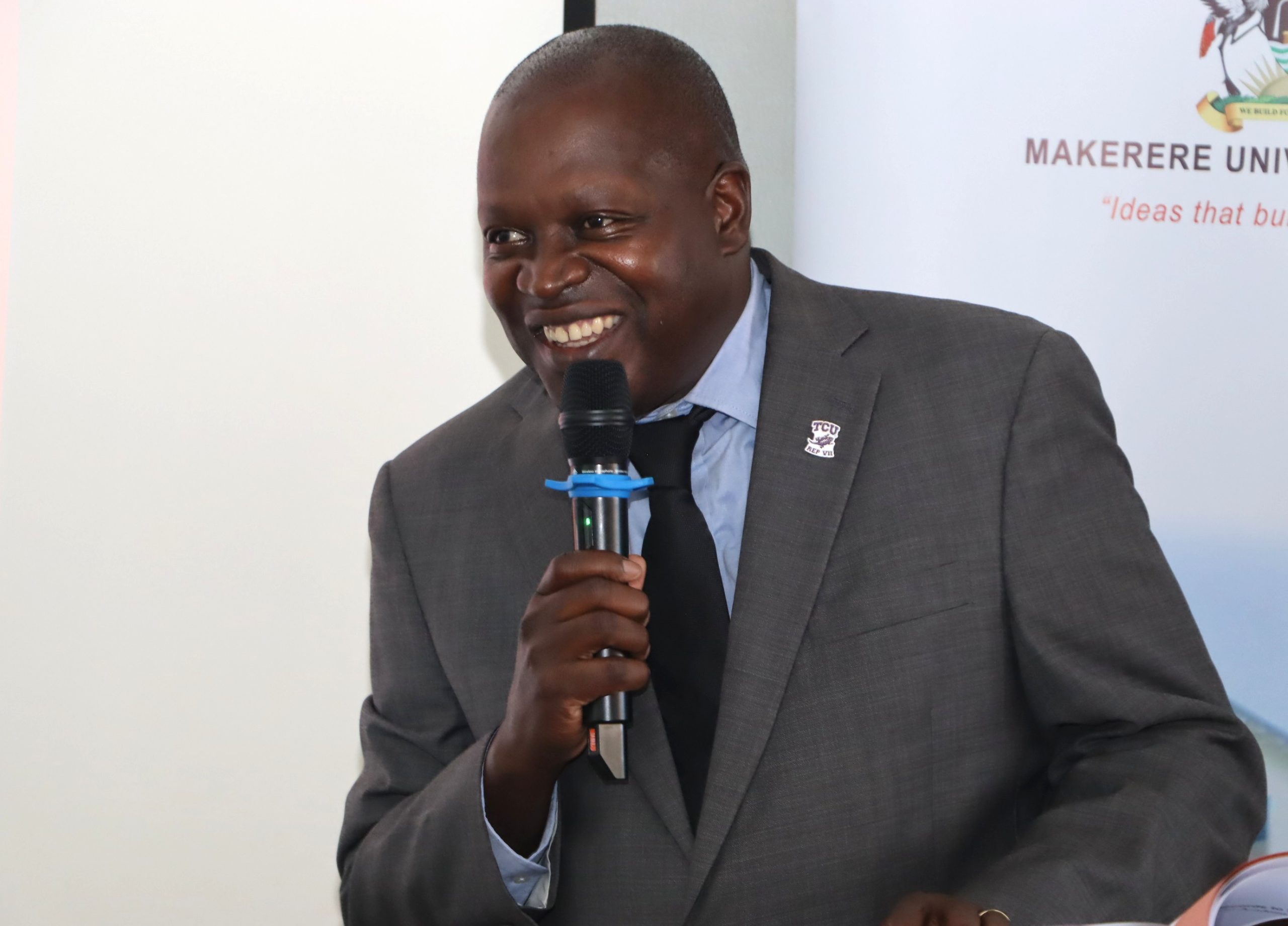
Prof. Oyana reflected on his personal contribution to the book, revealing that administrative responsibilities nearly forced him to withdraw. “Because of the work that I do, I was about to give up,” he admitted. “But Professor Magara was persistent. He came back to me and gave me more time.”
He credited a PhD student, Caroline Ilako, for assisting with library research and literature reviews, saying, “She did a wonderful job. We went back and forth through revisions, but finally we produced the work.”
On the quality of the book, Prof. Oyana said, “When you pick up a book, look at how it is laid out. The quick judgment tells you about the quality. This is well put together. We are beginning to show quality comparable to Western presses.”
He also challenged traditional notions of “publish or perish,” noting, “As scholarship evolves, those who evaluate scholarship must also adjust. Impact, innovation, and tangible products are increasingly valued alongside journal articles.”
Editor Highlights Research-Based Approach
Prof. Elisam Magara, the book’s editor, explained that the guide is designed to support scholars from the moment they conceive a research idea to the point their work is published and read. “I looked at the books we were using and asked myself: which kind of book can truly guide students? We needed a clear guide from the time a scholar thinks of writing up to the time the book is read,” he said.
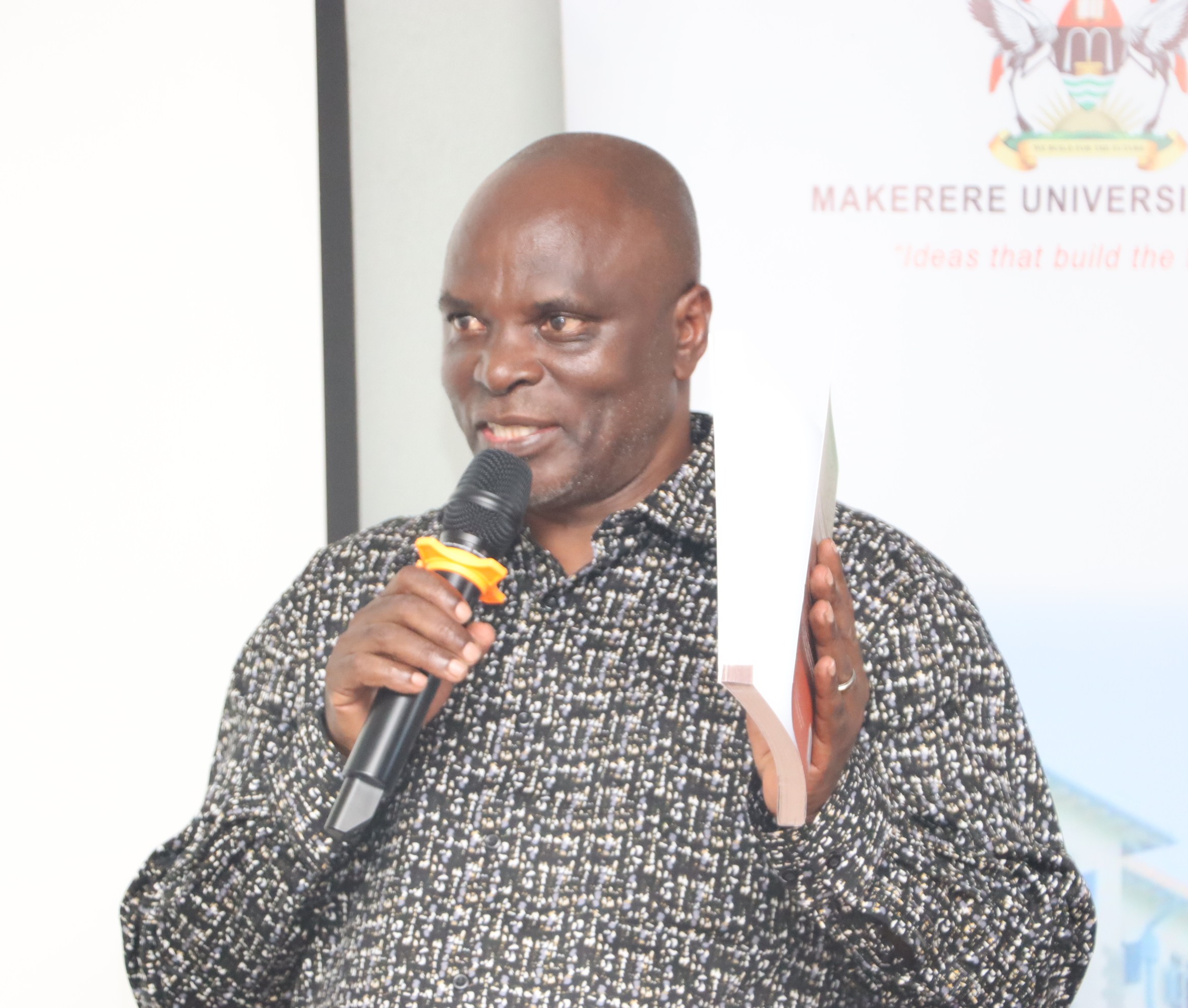
He detailed the rigorous editorial process that began in 2022, including international calls for contributions, peer review of abstracts, writeshops for feedback, and multiple rounds of chapter reviews. “Don’t write and keep,” he advised. “Your book must have impact. It must reach the public and be used.”
Prof. Magara also acknowledged the sabbatical granted by the Vice-Chancellor, which enabled him to balance teaching and editorial responsibilities. “This book is meant not just for Makerere but for scholars across the region and beyond,” he said.
Mak Press Outlines Rigorous Publishing Process
Dr. Isaac Tibasima, representing the Managing Director of Makerere University Press, explained the publication pathway. “Once you bring your manuscript to the press, we take it through evaluation, external peer review, revisions, copy-editing, typesetting, and pre-press review before printing,” he said.
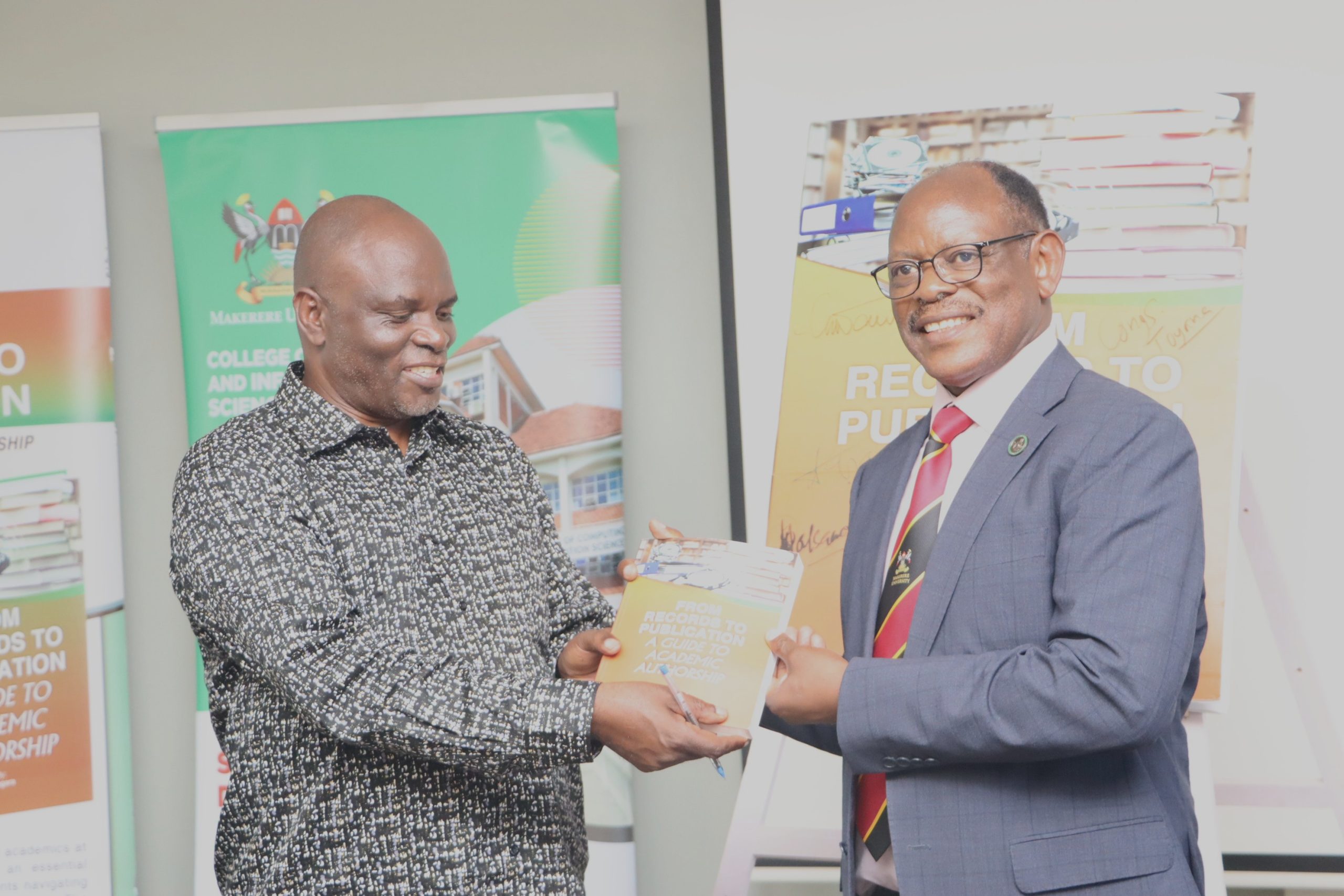
He also highlighted the press’s efforts to strengthen college-based journals. “We will not run the journals, but they will be published under the imprint of Makerere University. If we produce consistent issues, we can then move toward global indexing,” Dr. Tibasima said.
All new journals and articles now carry Digital Object Identifiers (DOIs) to enhance discoverability, while past publications are being retroactively assigned DOIs. “We are not there yet, but we are moving there, and we are intentional about getting there,” he added.
School Leaders Celebrate Scholarship and Mentorship
In welcome remarks, Dr. Sarah Kaddu, Dean of the School, said, “This event is a celebration of scholarship, intellectual discipline, and the journey of knowledge creation. This book speaks directly to one of the most critical challenges facing scholars—transforming research records into publishable work.”
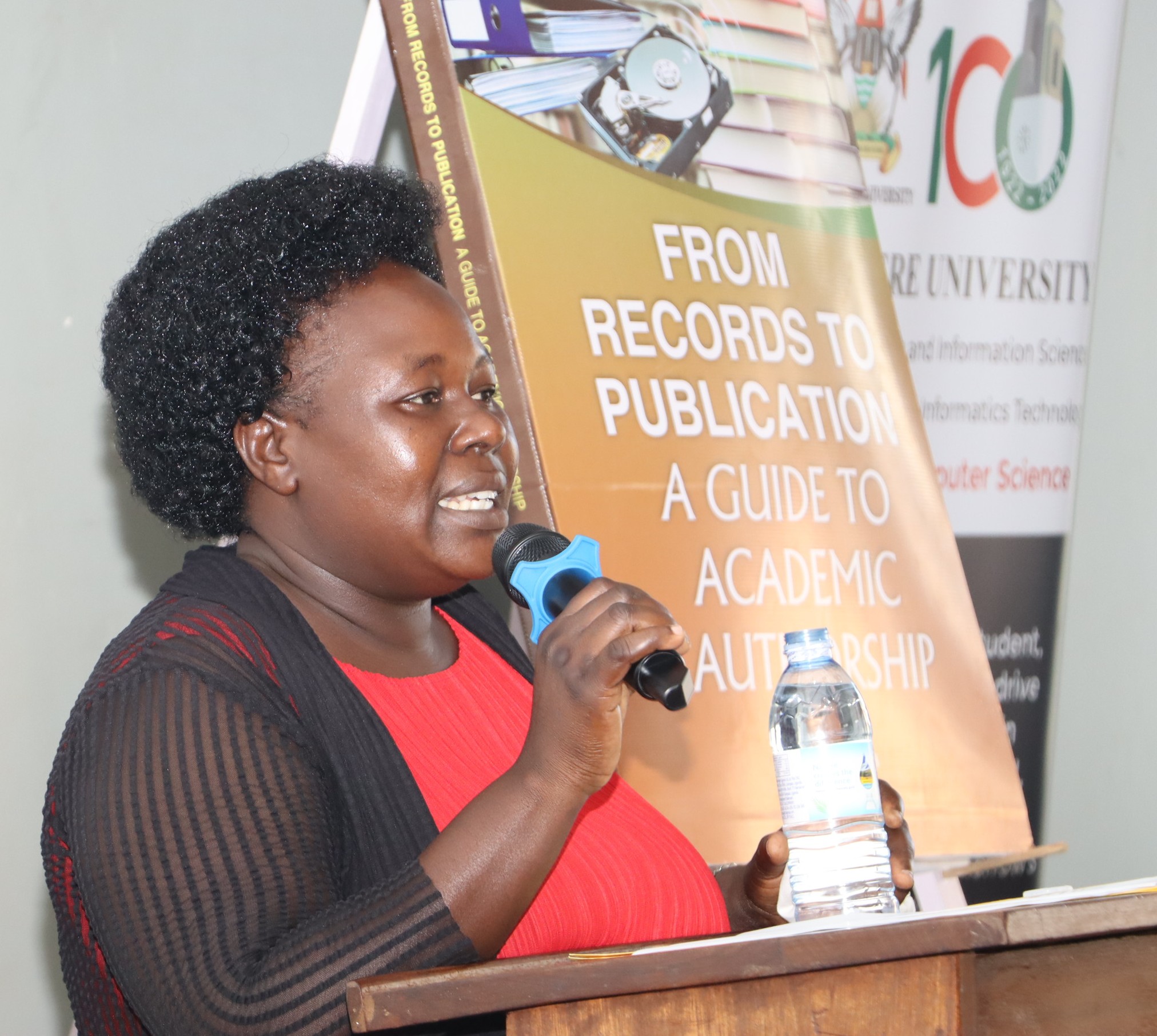
Dr. Sylvia Namujuzi, Head of the Department of Records and Archives Management, added, “This book is timely. It responds to real challenges faced by early-career researchers, postgraduate students, and even seasoned academics—questions of structure, authorship ethics, citation, collaboration, and navigating the publication ecosystem.”
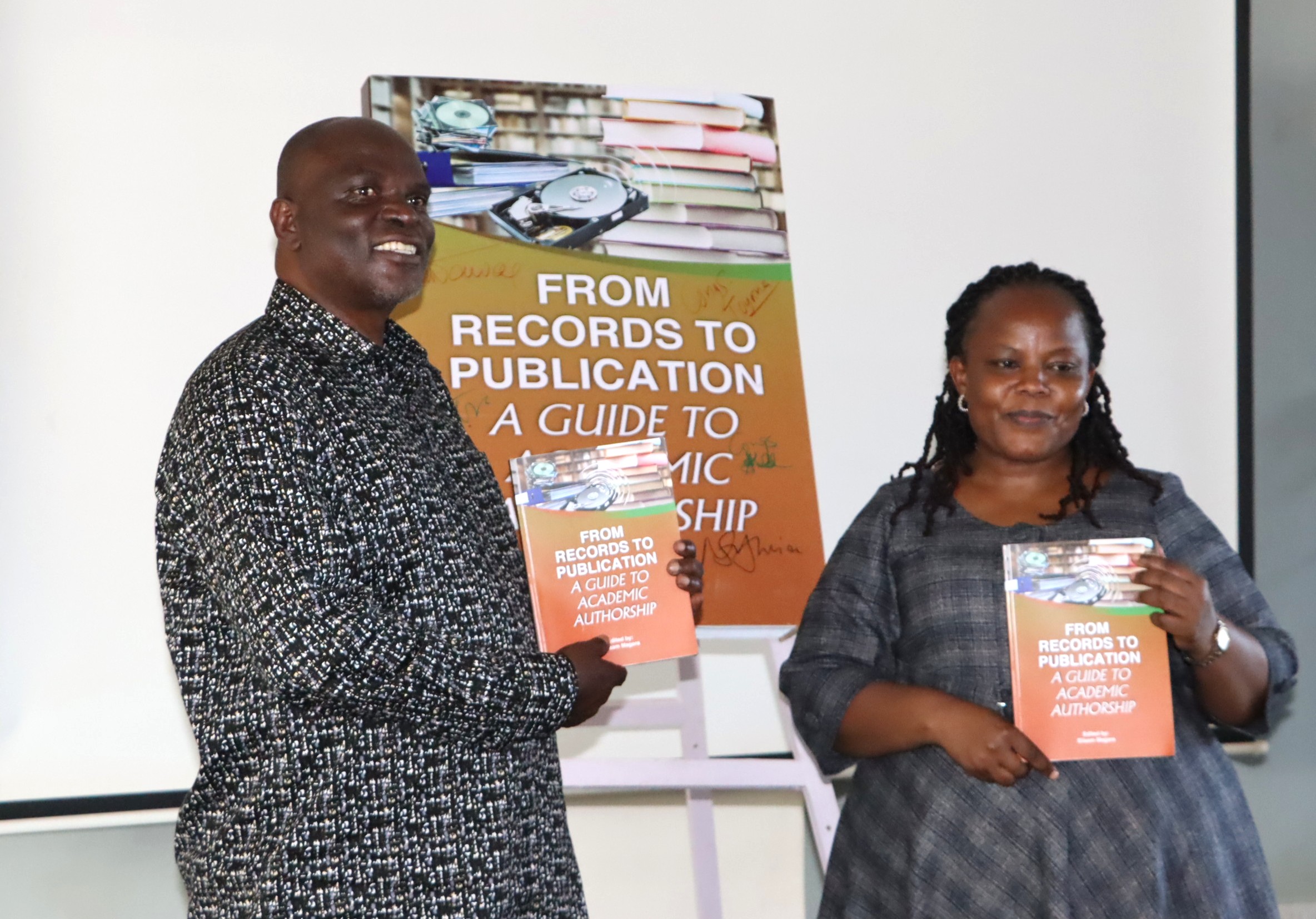
She concluded: “Well-managed records are not endpoints; they are the beginning of inquiry, reflection, and publication. This guide demonstrates that pathway.”
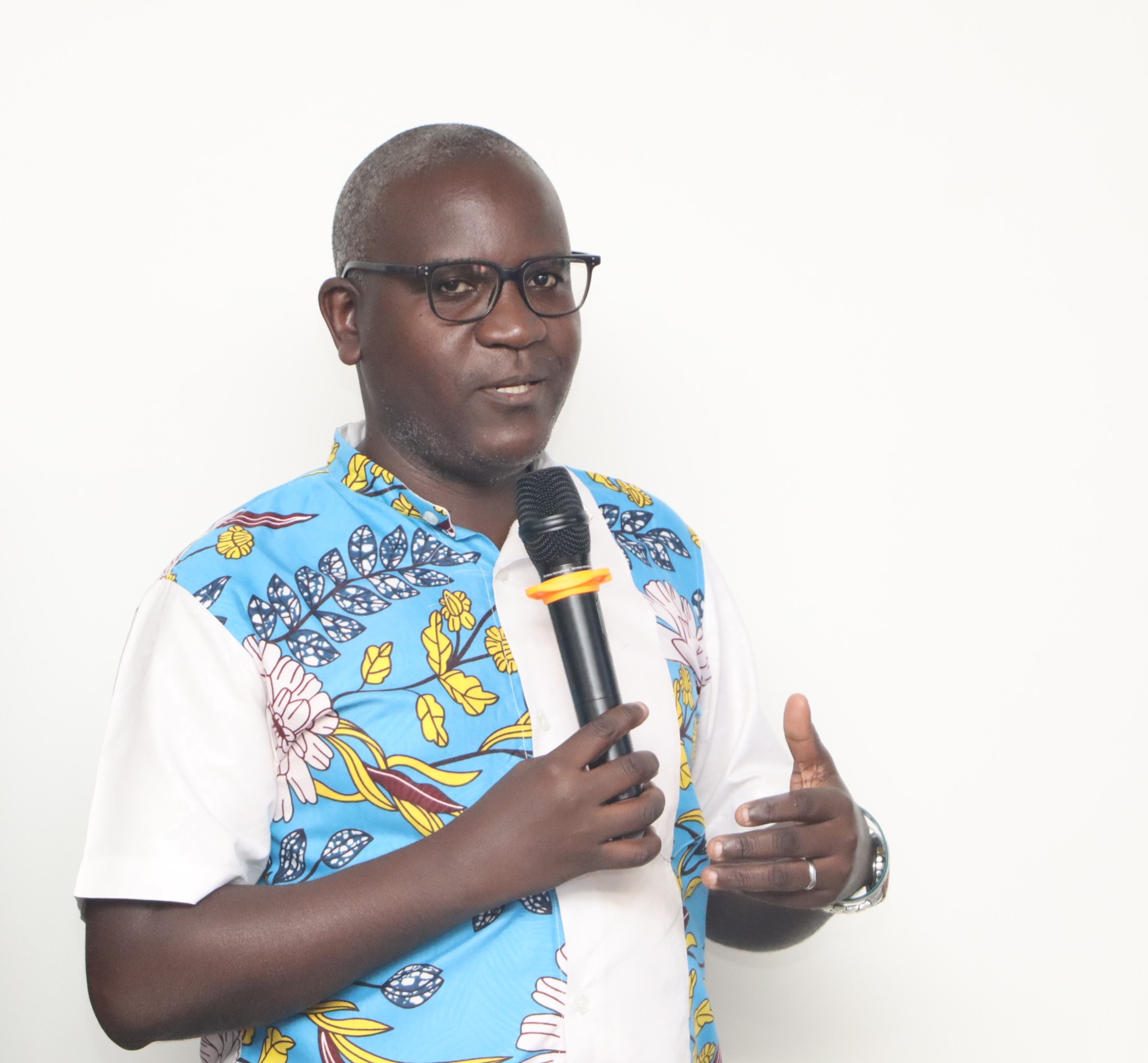
Book Outline
- Introduction: Publication Journey. (Prof. Elisam Magara)
PART I: Foundations of Academic Authorship.
- Conceptual Foundations of Academic Authorship
Elisam Magara and Joseph Kiplangat.
- Archives as a Source of Information for Academic Writing
David Luyombya, Sylivia Namujuzi and Francis Ekwaro
- The place of Oral History in Contemporary Writing
Elisam Magara, James Nkanshah-Obrempong and Nthan Nzyoka Joshua
- Managing Ethical Dilemmas in Academic Writing
Maria Tsvere, Tsitsi Kanonge and Joselin Chigwada
- The Role of Copyright and Neighbouring Rights in Protecting Works of Authors and Publishers in Uganda
Ronald Kakungulu Mayambala
PART II: Managing the Publication Process
- A Manuscript: From Inception to Publication
Sarah Mirembe Kyankya
- Managing Co-Authorship in Academic Writing
Gankhanani Moffat Moyo
- Managing Illustrations and Visual Artworks in Academic Writing
Bob Magara Rutatugirwa
- Tapping into Open Access Platforms for Gainful Authorship
George Muganga
- Managing the Costs in Academic Authorship
Aloysius Rukundo
- The Important Translation in Publication
Monica Mweseli
- Citations and Referencing in Academic Writing
Clement Lutaaya Nabutto, Namujuzi Sylivia, and Daviv Luyombya, Makerere University
- Referencing Management Software In Academic Writing
Odeke Moses Osamai and Constant Okello-Obura
- Compliance with International Bibliographic Control Standards in Academic Authorship
Elisam Magara and Dniel Osinde
PART III: Secondary Services in Academic Writing
- Journal Impact Factor and its Role when Submitting a Publication Article
Tonny J. Oyana and Caroline Ilako
- Managing Mentorship Programmes for Scholarly Writing
Diyoshak Rhoda Danladi and Elisam Magara
Report by
Jane Anyango, Principal Communication Officer CoCIS
Ritah Atukwatse, Journalism and Communication Student (2nd Year)
Fred Kanwagi, Journalism and Communication Student (3rd Year)
Computing & IS
CoCIS CIPSD Short Courses Jan-Mar 2026
Published
1 month agoon
January 19, 2026By
Mak Editor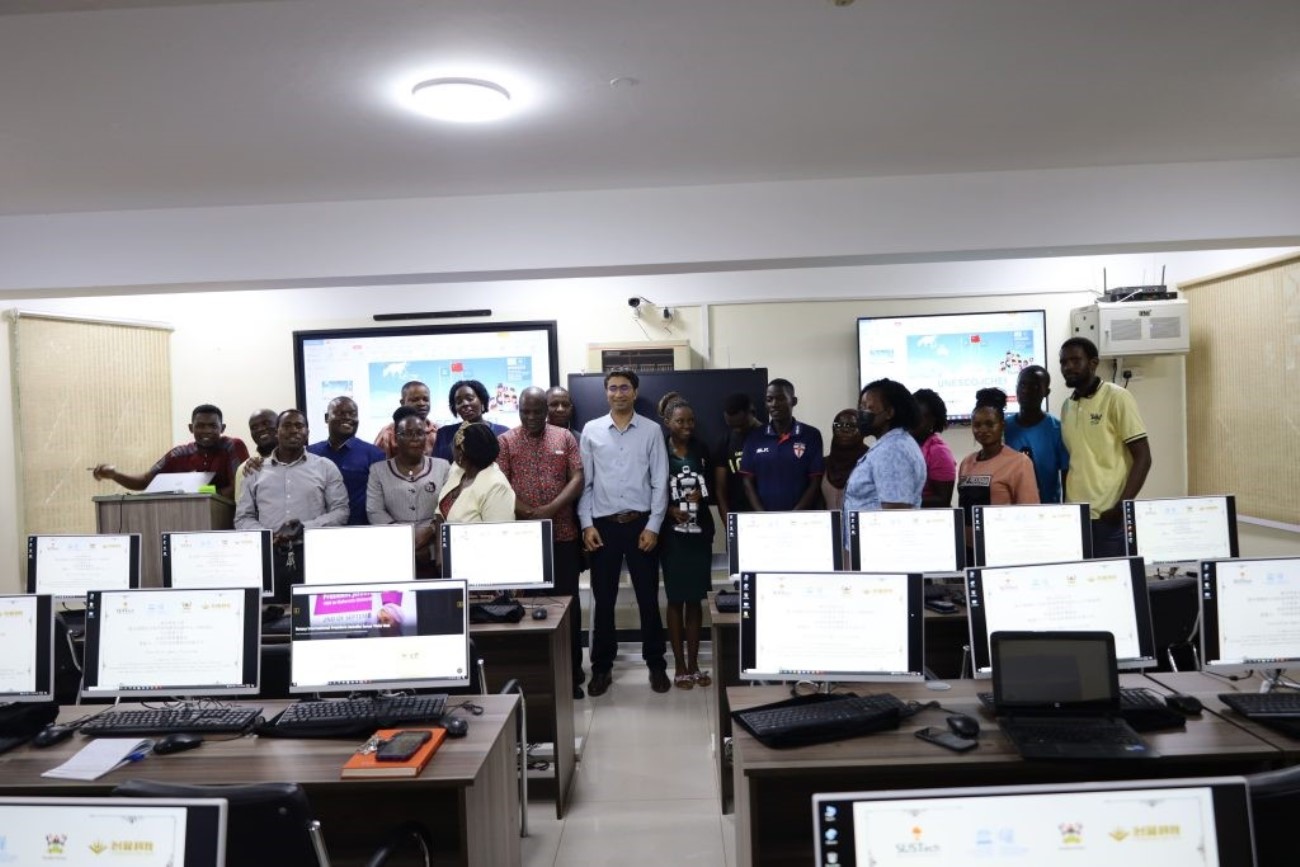
Makerere University College of Computing and Information Sciences (CoCIS) is the main ICT Training, Research and Consultancy Centre in Makerere University. The College has six Academic departments comprising of the Department of Computer Science, Department of Networks, Department of Information Technology, Department of Information Systems, Department of Library and Information Sciences, and the Department of Records and Archives management.
In addition to the mainstream degree programmes, CoCIS has a specialized Center for Innovations and Professional Skills Development (CIPSD) which delivers state-of-art training in ICT e.g. the Cisco Networking Academy for Cisco related courses, the Microsoft IT Academy Program for Microsoft related courses, International Computer Driving License course, Oracle Certified Training center for Oracle, Linux and Unix Training center. CIPSD also offers Machine Learning, Big Data Analytics, Data Science, Artificial Intelligence (AI) and Ethical Hacking as online courses. The College is an authorized Testing center, operating under PearsonVUE and Kryterion. Listed in the table (see download below) are the courses currently offered at the Center with their next start dates, duration, and cost.
- All courses are at affordable fees catering for Students, Vacists, Professionals and
- Anyone who wants to start a career in ICT or polish his/her ICT skills.
Contact Information
E-mail: psd.cis@mak.ac.ug
Tel: +256 782 512 897 +256 752 779964
URL: https://cocis.mak.ac.ug/cipsd/
Computing & IS
Makerere University and SoonPay Sign Landmark MoU to Champion Blockchain Innovation and Financial Inclusion Across Africa
Published
2 months agoon
December 9, 2025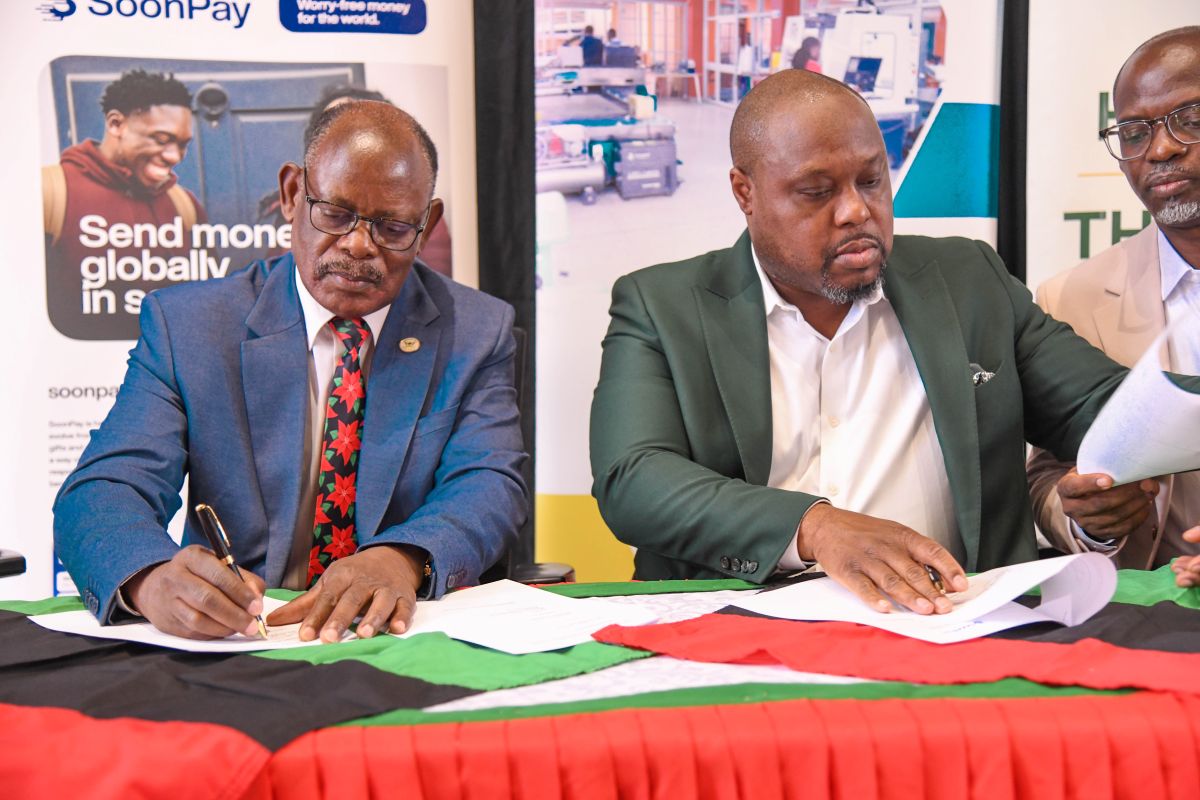
On Saturday 6th December 2025, Makerere University entered into a ground-breaking partnership with the U.S.-based fintech company SoonPay, marking a major breakthrough in Uganda’s push to integrate emerging technologies into research, innovations, higher education and national development.
The Memorandum of Understanding was signed by the Vice Chancellor of Makerere University, Prof. Barnabas Nawangwe and Mr. Frantz Morency, Chief Executive Officer of SoonPay L.L.C, during the Makerere University Financial Innovation Day, a high-energy event that brought together over 800 students, faculty, industry partners, and technology leaders.
The MoU institutionalizes the collaboration of Makerere University through the Makerere University Technology and Innovation Centre and SoonPay LLC. The signing ceremony was witnessed by Dr. Cathy Ikiror Mbidde-Manager of Makerere University Technology and Innovation Centre and Ms. Vuyani Jones-Blockchain Infrastructure Manager.
Organized by the Makerere University Technology and Innovation Centre (MUTIC) in partnership with SoonPay, the event ran under the theme “Innovation and Financial Inclusion for a Secure Future.” It featured keynote speeches, panel discussions, live demonstrations, and the signing of a Memorandum of Understanding (MoU) that will usher in a new era of blockchain training, research, and innovation at Uganda’s premier university.
The event was supported by several partners, including the National Social Security Fund (NSSF), the Uganda Blockchain Association, the National Planning Authority (NPA), Prudential Uganda, and other technology and financial sector stakeholders.
A Strategic Partnership to Transform Africa’s Digital Landscape
The newly signed MoU between Makerere University and SoonPay is expected to unlock a broad set of opportunities for students and academic staff. These include blockchain education and certification, joint research projects, internships and apprenticeships, the development of new financial inclusion tools, and the integration of emerging technologies into existing academic programs.
SoonPay’s entry into Uganda is part of a larger vision to expand blockchain-driven solutions across Africa—a continent its executives say has historically been excluded from global technological revolutions.

Impressed by the overwhelming numbers of students who filled the Yusuf Lule Central Teaching Facility Auditorium to the brim, the Vice Chancellor, said: “Dear students, by choosing to stay on campus, on a Saturday, and after completing your examinations, you have demonstrated your willingness to learn and embrace the blockchain technology as well as emerging technologies in general.”
Stating that blockchain technology is the future for Africa, the Vice Chancellor challenged the students to take charge of Africa’s digital transformation.
“You are the people to emancipate Africa from marginalization,” he declared. “What will liberate our continent is not politics—we have done too much of that. It is education, research, innovation, and technology.”
Prof. Nawangwe delivered a sweeping historical reflection, tracing Africa’s technological setbacks to the destruction of its civilization over several centuries.
“For 400 years, Africans were taken away as slaves. For another 200 years before that, our lands, knowledge systems, and technologies were disrupted,” he said. “This represents around 600 years of destruction and marginalization of African civilization.”
He urged students not to miss the opportunity that modern technologies such as blockchain and artificial intelligence present.
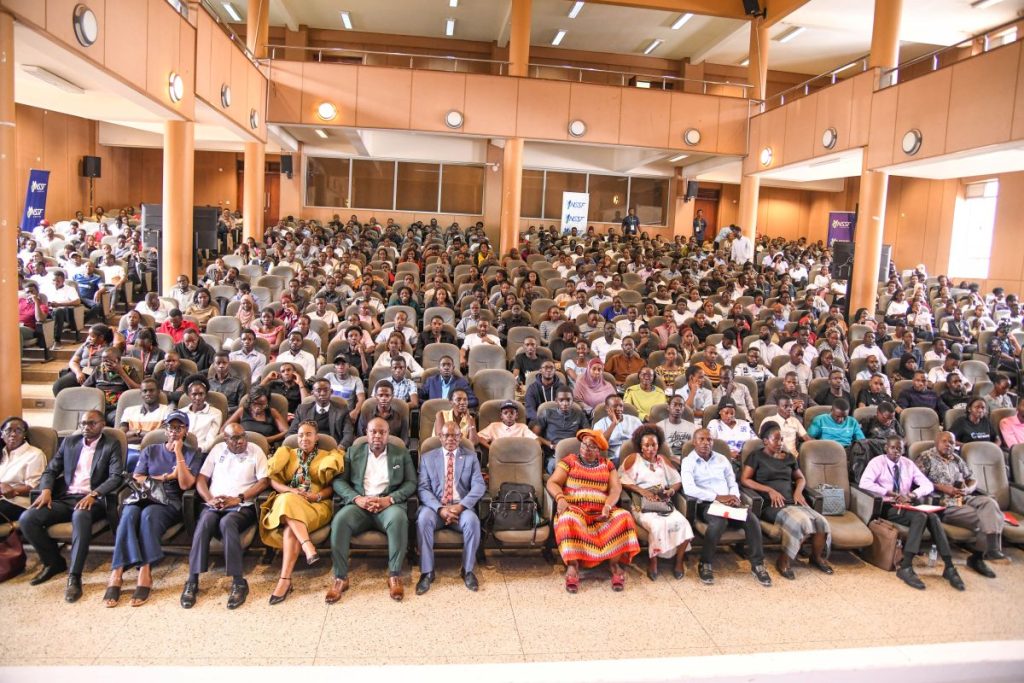
“We are lucky to be living in an era where Africa is free,” the Vice Chancellor said. “My hope is that we do not wait another 600 years to take advantage of this freedom. The most important resource we have is not minerals; it is human resources—you, the youth.”
Prof. Nawangwe reminded students that Makerere’s reputation as the “intellectual capital of Africa” places immense responsibility on their shoulders.
“You are among the very few Ugandans privileged to study at Makerere University. University graduates are not supposed to wait for jobs—you are the ones expected to create them,” he said.
Why Blockchain? Transparency, efficiency, and global competitiveness
The Vice Chancellor highlighted the transformative potential of blockchain technology, especially in improving financial systems—a sector he described as the backbone of any modern economy.
“Without efficient financial systems, nothing else works,” he said. “Blockchain offers transparency, reduces fraud, and minimizes corruption. If applied properly, it could transform how we manage finances, education, and even our natural resources, including the oil that Uganda is about to exploit.”
He added that Makerere’s students are already demonstrating global competitiveness in innovation, winning international competitions and creating products across multiple disciplines.
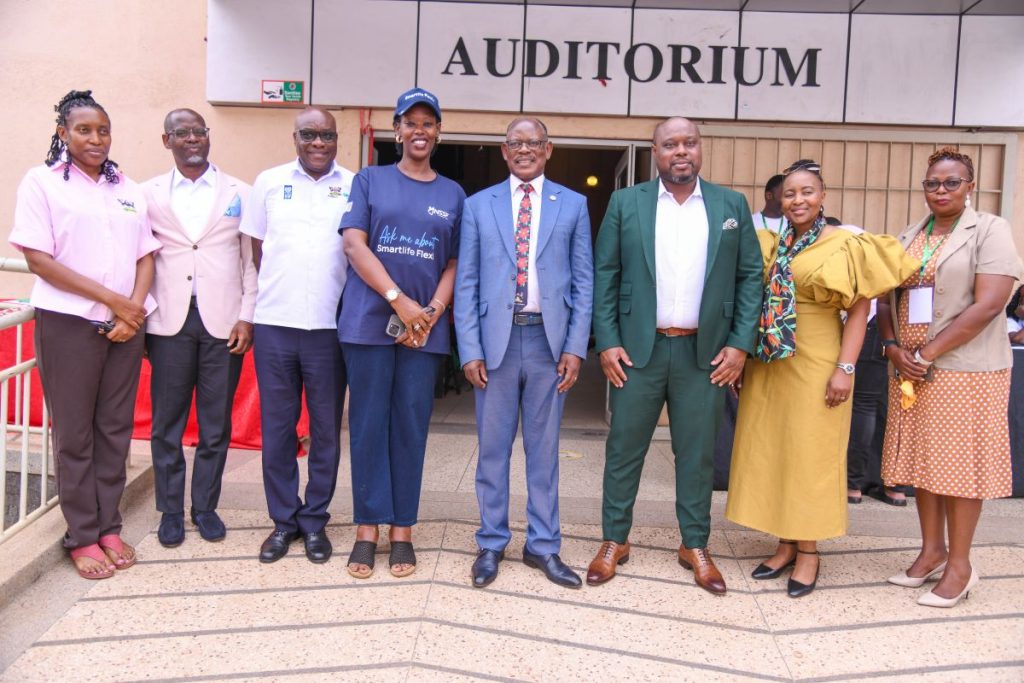
“The brains are here,” he said. “What we need is exposure to opportunities and technologies that will help you turn your ideas into impactful solutions.”
In a passionate keynote address, SoonPay CEO, Mr. Frantz Morency underscored why his company chose Uganda as its launchpad for blockchain adoption in Africa.
“As the Professor said, we have been excluded for more than 400 years,” he stated. “Even though we’re an American company, we know our roots. Look around the SoonPay team—you will see yourselves. We chose Uganda intentionally.”
Mr. Morency pointed to Africa’s dismal participation in the global blockchain economy. “In the U.S., blockchain generates $2.6 billion—61.7 percent of the world’s share. The rest of the world generates $1.6 billion. And Africa, just $14 million, or 0.33 percent,” he said. “That is unacceptable.”
He attributed the gap not to a lack of interest among young Africans, but to a lack of opportunity. “You want to learn—what you lacked was opportunity,” he said. “With the support of Professor Nawangwe, Dr. Cathy Ikiror Mbidde, and Dr. Margaret Nagwovuma, SoonPay wants to bridge that gap in education, technology, and economic opportunity.”
Mr. Morency also shared his personal journey, connecting his Haitian background to the aspirations of African youth.
“Many of you may see me as ‘the guy in the green suit,’ but I come from a small island—Haiti,” he said. “My mother never finished first grade; my father never finished second grade. What they gave me was integrity, work ethic, and the determination to seize opportunities when they came.”
He urged students not to seek opportunities abroad out of desperation, but to build meaningful careers in Africa. “Africa does not need to lose its talent. Why can’t you build here? Why can’t businesses, innovation, and prosperity thrive here?” he said. “Educate yourselves. Build. Create. Grow.”
A milestone for Makerere and Africa
Dr. Cathy Ikiror Mbidde, Head of the Makerere University Technology and Innovation Centre (MUTIC), described the event as a “major milestone” in the institution’s evolution.
“We are here to witness one of the key emerging technologies and to reflect on how universities can embrace such milestones,” she said. “Everyone has a role to play in transforming our lives through research, ideas, and projects.”
She thanked SoonPay for choosing Makerere University, noting that students had been “instrumental” in pushing for blockchain education.
“You have been constantly asking questions, pushing us, and showing deep curiosity about blockchain. Today, we finally have answers,” she told the students.
Beyond the speeches, the event showcased SoonPay’s blockchain infrastructure, student-led innovations, and a roadmap for integrating digital finance tools into university programs. Partners such as NSSF emphasized the importance of preparing young people for a digital future.
With the MoU now in force, Makerere University is positioning itself as a regional hub for blockchain education, research, and innovation. The partnership with SoonPay aims not only to train students but to shape Uganda’s—and Africa’s—next generation of tech leaders.
Trending
-

 General2 weeks ago
General2 weeks agoAptitude Exam (Paper 1) Results for the Mature Age Entry Scheme 2026/2027
-

 Health3 days ago
Health3 days agoUganda has until 2030 to end Open Defecation as Ntaro’s PhD Examines Kabale’s Progress
-

 Health2 weeks ago
Health2 weeks agoHow Jimmy Osuret Turned Childhood Trauma into Evidence for Safer School Crossings
-

 General2 weeks ago
General2 weeks agoFor Youth by Youth – Call for Second Cohort Applications
-

 General3 days ago
General3 days agoMastercard Foundation Scholars embrace and honour their rich cultural diversity
